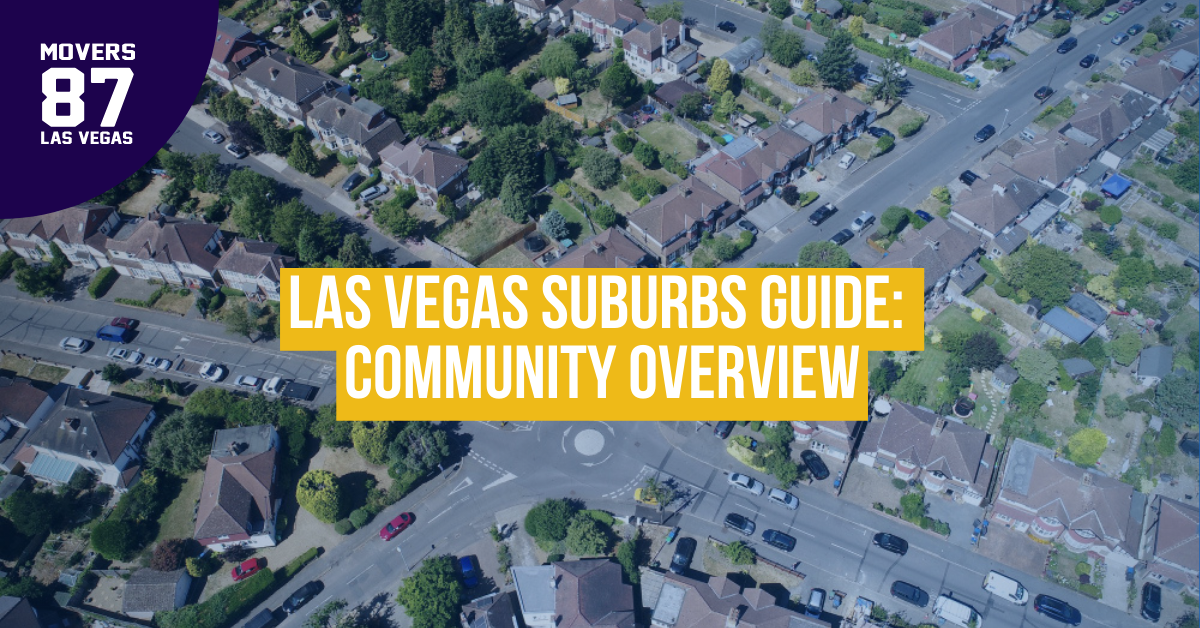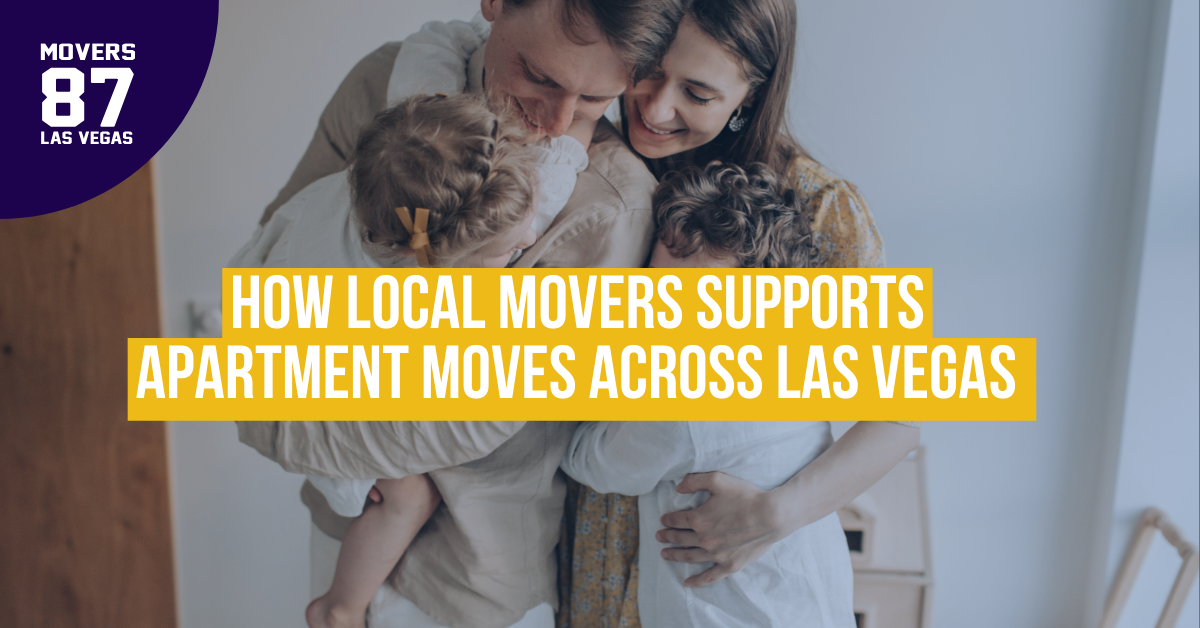Understanding Cross-Country Moving Costs

Whether you're moving coast to coast or from the northern border to the sunny south, understanding the financial aspect of this giant leap can significantly ease the journey. This is where 87 Movers Las Vegas steps in, offering not just moving services but also guiding you through understanding and managing your cross-country move costs. With reliable services tailored to fit your needs, we ensure your moving experience is less about stress and more about the excitement of starting fresh.
Welcome Aboard: Ease Your Long Distance Journey with 87 Movers Las Vegas
Moving across states involves several variables that can dramatically affect your overall costs. While the idea of starting anew in a different part of the country is exhilarating, the thought of managing the logistics and expenses can be daunting. That's where we come in. At 87 Movers Las Vegas, we pride ourselves on providing moving solutions that cater to your every need, making your move as seamless as possible. Throughout this article, we'll navigate the intricacies of cross-country moving costs together, ensuring you're well-equipped with the knowledge to make informed decisions every step of the way.
Setting the Stage: What Influences Cross-Country Moving Costs?
Several key factors dictate the overall cost of your cross-country relocation journey. Understanding these elements is crucial in budgeting accurately for your move:
- Distance: The mileage between your current home and your new one is non-negotiable and significantly influences the cost.
- Moving Services: Deciding between full-service movers, DIY moving, and other services can affect your budget. Each option offers different benefits at varying price points.
- Time of the Year: Moving during peak seasons like summer can drive up the costs due to higher demand.
- Weight and Volume of Items: The amount and size of your belongings directly impact the price. More stuff means higher costs.
- Special Items: Items requiring special handling, such as pianos or valuable art, can add to the cost due to the need for special equipment, materials or expertise.
- Insurance: Moving insurance or valuation coverage offers peace of mind but at an additional cost.
The cost of moving across the country can vary widely based on the factors mentioned above. On average, the price range for a cross-country move can span anywhere from $2,000 to $10,000 or more. This broad range accounts for different house sizes, distances, and service levels. Bear in mind, these are general estimates. Your specific move might fall above or below these averages depending on personalized factors.
Your Moving Budget: Estimating Your Specific Moving Costs
Crafting a realistic budget for your long distance move involves a bit more than just crunching numbers. It requires a comprehensive understanding of your needs and the potential costs associated. Here's how to get started with estimating your moving expenses:
- Inventory of Belongings: Begin by taking stock of everything you plan to move. This will not only help you get a clear idea of the volume of your move but also assist in decluttering.
- Research and Compare Moving Companies: Not all movers are created equal, especially when it comes to long-distance relocations. Obtain quotes from several reputable companies like 87 Movers Las Vegas to compare rates and services.
- Consider Additional Services: If you're opting for packing services, specialty item moving, or storage, factor these into your budget. They can significantly impact the overall cost.
- Get an In-Home Estimate: Most reputable moving companies will offer an in-home estimate to provide a more accurate quote based on the inventory and services you need.
Wise Choices: Selecting the Right Moving Services
When it comes to cross-country moves, you have several options in terms of moving services. Each has its advantages and costs:
- DIY Moving: While it may seem like the cheapest option, consider the rental costs, fuel, and the time and labor you'll invest.
- Full-Service Moving: A stress-free option where the moving company handles everything from packing to unpacking. While more expensive, companies like 87 Movers Las Vegas offer comprehensive services that justify the cost.
- Moving Containers: A middle-ground option where you pack, and the company transports the container to your new home. This can be cost-effective and offers flexibility.
- Specialty Moving Services: For valuable or heavy items, specialty services ensure safe transport, adding to the peace of mind but also the cost.
Your choice will depend on your budget, timeline, and how much work you're willing to undertake. Weighing these options carefully can help you select the best service for your situation.
Money-Saving Strategies: How to Reduce Cross-Country Moving Costs
Reducing the costs of a cross-country move is possible with some strategic planning and decision-making. Here are some actionable tips:
- Declutter Before Moving: The less you move, the less it costs. Selling or donating items not only reduces weight but can also put some extra cash in your pocket.
- Choose the Right Moving Time: Avoiding peak seasons can lead to more negotiable rates.
- Packing Yourself: If you have the time and capability, packing yourself can save on costs. However, be aware that improperly packed items might not be covered by insurance.
- Book Early: Securing your move date well in advance can sometimes lock in better rates.
Avoiding Pitfalls: Hidden Costs of Cross-Country Moves
Even the most meticulously planned moves can encounter unforeseen expenses. Here are a few hidden costs to be aware of:
- Insurance Upgrades: Basic moving insurance might not cover the full value of your belongings. Consider whether you need additional coverage.
- Last-Minute Changes and Cancellations: These can incur fees, so it's crucial to be as certain as possible about your plans before booking.
- Storage Fees: If your new home isn't ready or you're downsizing, you might need short-term storage, adding to the overall cost.
Wise Planning: Tools and Resources for Budgeting Your Move
Preparing financially for a cross-country move doesn’t have to be overwhelming. Leveraging modern tools and resources can simplify budgeting and tracking your expenses. Here are a few recommendations:
- Moving Cost Calculators: Many reputable moving websites offer cost calculators that provide rough estimates based on your move's specifics. This can serve as a starting point for your budgeting.
- Budgeting Apps: Apps like Mint or You Need a Budget (YNAB) can help you set aside funds specifically for your move and track spending in real-time, ensuring you stay on budget.
- In-Home Estimates: Nothing beats the accuracy of an in-home estimate. Companies like 87 Movers Las Vegas offer this service, evaluating your belongings and providing a detailed quote that can help refine your budget.
- Spreadsheet: For those who prefer a more hands-on approach, creating a detailed spreadsheet with estimated and actual costs can offer total control over your moving budget.
Finalizing Your Cross-Country Move Plan
With a clear understanding of your moving costs and the potential savings strategies, the final step is to lock in your plans. Here’s a quick checklist to ensure you’re ready for moving day:
- Reconfirm moving dates and services with your chosen company.
- Finalize insurance options based on the value of your belongings.
- Complete any remaining packing, adhering to guidelines provided by your movers for safe transport.
- Set aside an essentials box for immediate needs upon arrival.
- Prepare for the moving day by confirming logistics, such as parking for the moving truck.
How 87 Movers Las Vegas Can Guide You
Embarking on a cross-country move is no small feat, but with the right planning, budgeting, and professional guidance, it can be a rewarding experience. Throughout this journey, 87 Movers Las Vegas stands ready to offer the expertise and support needed to navigate the complexities of moving costs. Our commitment to transparency, combined with comprehensive moving solutions, ensures that you can set sail towards your new home with confidence and peace of mind.


